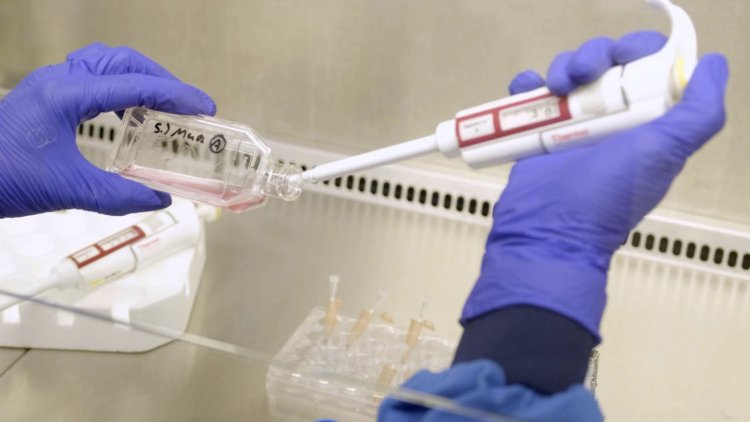Lab-grown blood given to humans in world-first trial

Blood grown in a laboratory has been transfused into humans for the first time in a landmark clinical trial that UK researchers say could significantly improve treatment for people with blood disorders and rare blood types.
Two patients in the UK received tiny doses of the lab-grown blood in the first stage of a wider trial designed to see how it behaves inside the body.
The trial, which will now be extended to 10 patients over the course of several months, aims to study the lifespan of lab-grown cells compared with infusions of standard red blood cells.
Researchers say the aim is not to replace regular human blood donations, which will continue to make up the majority of transfusions.
But the technology could allow scientists to manufacture very rare blood types which are difficult to source but which are vital for people who depend on regular blood transfusions for conditions such as sickle cell anaemia.
For the trial, the lab-grown blood was tagged with a radioactive substance, often used in medical procedures, to monitor how long it lasts in the body.
The same process will now be applied for a trial of 10 volunteers, who will each receive two donations of 5-10 mls at least four months apart — one of normal blood and one of lab-grown blood — to compare the cells’ lifespans.
It is also hoped that a superior lifespan of lab-grown cells could mean patients require fewer transfusions over time.















